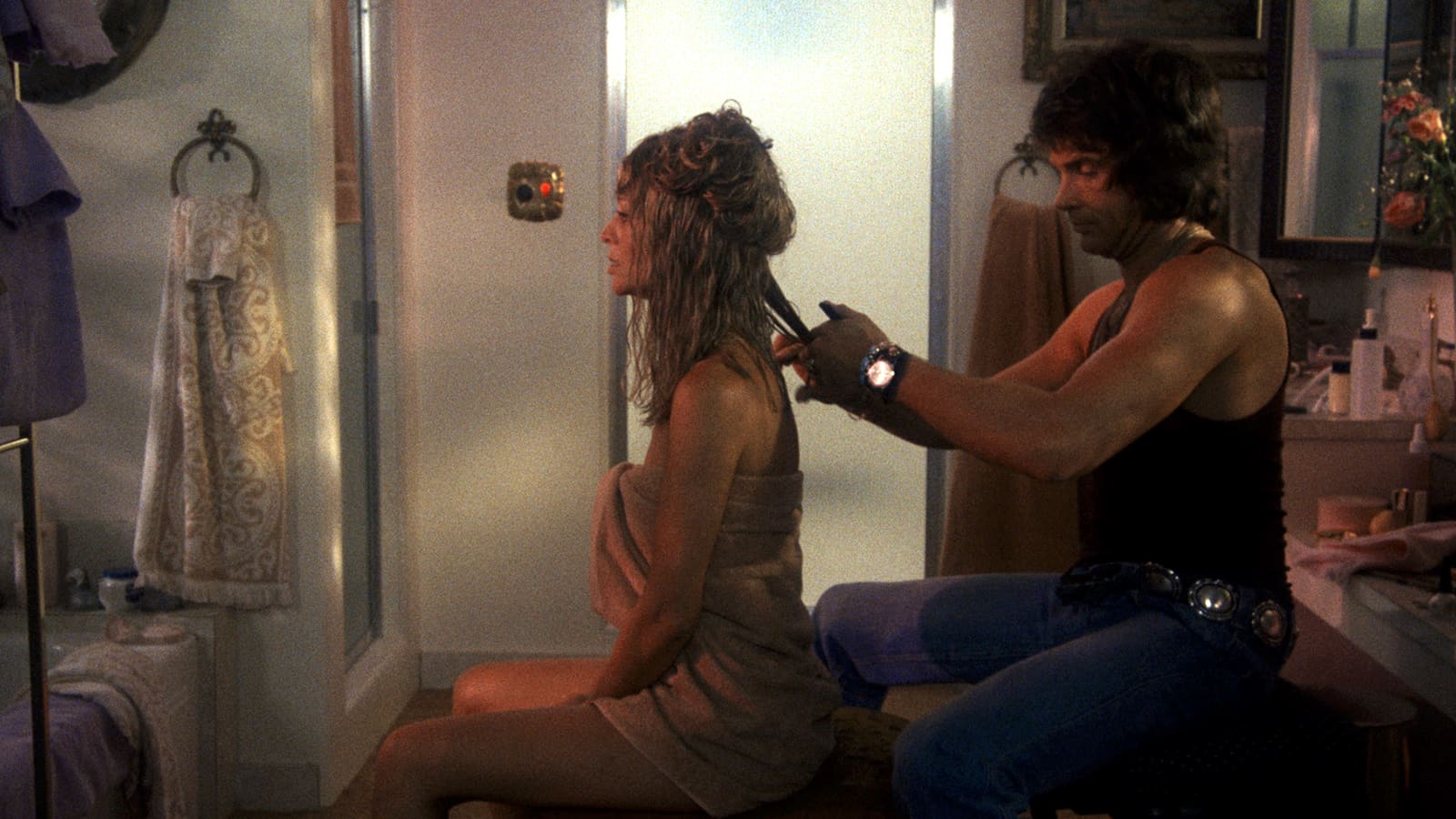Shampoo

“Shampoo should do for hairdressers what Lady Chatterly’s Lover did for gameskeepers,” quipped critic Andrew Sarris about one of the seventies’ sexiest films, in which Warren Beatty reinforced his sex symbol image in the unlikely role of a Beverly Hills hairstylist who sleeps with most of his clients . . . as well as any other woman he runs into.
Beatty’s George didn’t go to beauty school just because he wanted to style women’s hair—although that has become his passion—but because he wanted sexual access to all the pretty women who come to beauty salons. His plan worked. In this film, George juggles his free time among his girlfriend Jill (Goldie Hawn), former girlfriend Jackie (Julie Christie), lover Felicia (Lee Grant), and Felicia’s daughter, Lorna (Carrier Fisher). “Beatty,” marveled New York Times critic Vincent Canby, “can make outrageous self-interest plausibly funny in a way that escapes many professional comedians.”
Shampoo‘s sexual activity and the taboo-breaking language shocked many viewers in 1975. The New Republic claimed, “Shampoo is disgusting.” But most viewers just reveled in this combination social satire, bed-hopping farce (in which nobody initially knows who’s sleeping with whom), and acute character study of a thirty-sevenyear-old stud so afraid of settling down that he ends up alone. A commercial blockbuster, it was also popular with many critics. Canby called Shampoo “the film comedy of the year. A witty, furtively revolutionary, foul-mouthed comedy of manners cast in the fairly conventional frame of a story about the comeuppance of a small-town Casanova.”
Beatty was instrumental in the creation of Shampoo. In addition to playing George, viewed by many as his alter ego, Beatty produced Shampoo—the first film he had produced since 1967’s Bonnie and Clyde. He co-wrote the script with the revered Robert Towne (The Last Detail and Chinatown), and worked in concert with one of the seventies’ most original directors, Hal Ashby (The Last Detail, Harold and Maude, Coming Home). Beatty helped choose the music, which included original work by Paul Simon and classic songs by the Beatles and Beach Boys. Originally, Shampoo was to take place in the present, but it was Beatty’s idea to set the picture on the eve of Nixon’s election, giving George’s situation added weight. “I think that’s when the American people came face to face with who they really were,” Beatty said. “I think the prospects for George are pretty grim.” It is a day of trauma for both George and the country.
Moreover, Beatty assembled a remarkable cast, featuring Christie, Hawn, Grant, the seventeen-year-old Fisher, Jack Warden as Lester (Felicia’s wealthy husband and Jackie’s lover) and Tony Bill (as Johnny, Jill’s boss and new lover). Everyone gave uninhibited and, in some cases, raunchy performances. Grant deservedly won a Best Supporting Actress Oscar playing George’s shrewd, predatory lover, and Warden was nominated for Best Supporting Actor. As Jackie, Beatty’s then-girlfriend Julie Christie proved to critic Pauline Kael that “she’s not only an actress, she is, in the high-class hooker terms of her role, the sexiest woman in movies right now.” Her sex scenes with Beatty are all classics: in her bathroom (she’s draped only in a towel while he uses a hair dryer on her), at a society party (she drunkenly drops to her knees between nervous George’s legs), and at a party in a dark mansion she kisses George romantically to the strains of “Lucy in the Sky with Diamonds.”
The mumbling, twitching, stuttering, always-distracted George is Beatty at his most charmingly inarticulate. He can’t really finish a sentence; his alibis and explanations fail as he searches clumsily for the right words, his response to most questions and comments is a non-committal “Great!” But nonsexual communication proves problematic for all of Shampoo‘s characters. Beatty and his co-stars play sexually hungry people leading empty lives, using their lovers and being used in return. Confused, insecure, and insignificant people, they grope for happiness by sleeping around and cover up their unhappiness by being unfaithful. Of course, this creates a whole new set of difficulties. “The picture is unsettling,” Janet Maslin wrote, paraphrasing Beatty, “because it dares accept sexual promiscuity as a given and treat its concomitant problems seriously.” Quite an accomplishment for a comedy.




